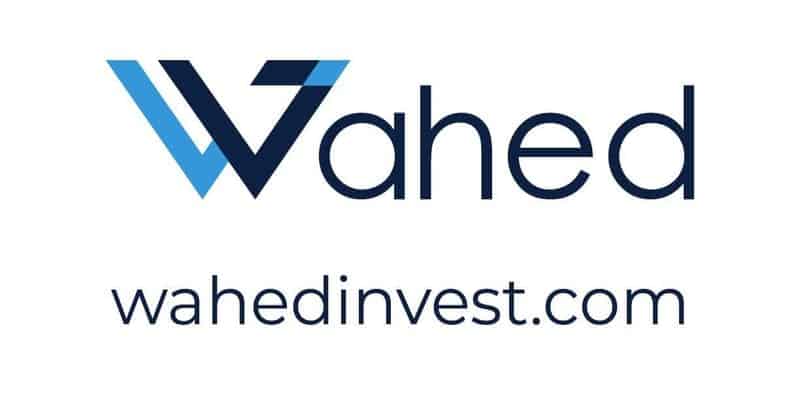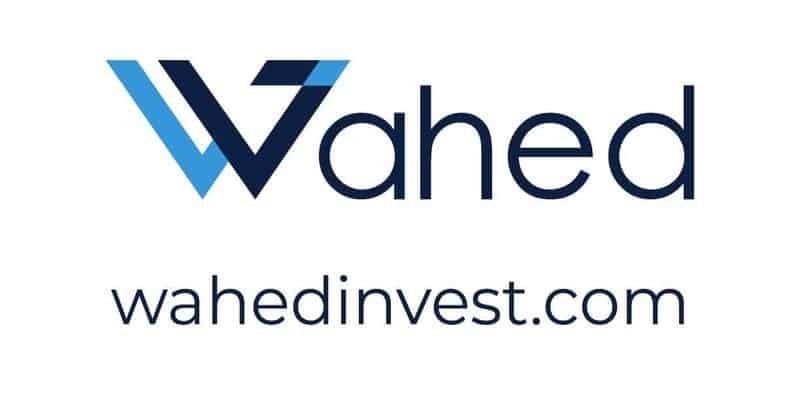Wahed Invest Fined $300k by SEC – What Does This Mean?

9 min read
Published:
Updated:

Ibrahim Khan
Co-founder
News broke this Thursday that Wahed Invest has been fined $300,000 by the USA’s Securities & Exchange Commission.
The press release is here, and the full legal order is here.
In this article we cover:
- What happened
- What Wahed have said
- How to understand this
- What this means for you if you are a Wahed Invest customer
- The IFG Analysis
What happened between Wahed Invest and the SEC
Wahed Invest were charged by the SEC with:
- Making misleading statements;
- For breaching its fiduciary duty; and
- For compliance failures related to its Sharia advisory business.
Misleading statements
The SEC noted that “from September 2018 through July 2019, Wahed Invest advertised the existence of its own proprietary funds when no such funds existed, and also promised investors that it would periodically rebalance their advisory accounts, but did not do so.”
In the order the SEC detailed the point of concern in more detail:
“During this period, however, Wahed Invest misrepresented to current and prospective clients on the Wahed Invest Website and in social media posts the existence of the “Wahed S&P Shariah Fund” and the “Wahed S&P Dividend Growth Fund,” when no such funds existed. For example, in a September 9, 2018, post on the Wahed Invest Website, titled “Wahed launches its S&P 500 Shariah Fund,” Wahed Invest stated: “[W]e are proud to announce the launch of our Wahed S&P Shariah Fund and the Wahed S&P Dividend Growth Fund.” Wahed Invest similarly released an informational video titled, “Introducing the Wahed S&P Halal Index Funds.” In its web announcement explaining the video, Wahed Invest stated that “these new funds will replace three of the existing mutual funds in your portfolio.”
The issue that the SEC had with this is that what Wahed were actually providing was a managed investment strategy where they were looking to mimic the returns of the S&P’s respective indices in a halal way. Investors were therefore investing in individual stocks, as opposed to investing in a pooled fund that benefits from the wider protections a fund gets under the Investment Company Act.
Breaching fiduciary duty
The SEC considered Wahed to be in breach of their fiduciary duty to clients (the duty to look out for clients where you are in a relationship of trust and confidence over them).
They said that “when Wahed Invest ultimately launched a proprietary ETF in July 2019, it used its clients’ advisory assets to seed the ETF without prior disclosure to clients of any conflicts of interest.”
The issues the SEC raised with this was that affected investors did not get told that Wahed Invest would now potentially get more in fees overall, that they would be helping to seed the fund and get it going so that Wahed could attract other investors to it too, and that Wahed did not tell their customers that the Wahed ETF was also run by them so there was a potential conflict of interest there.
Sharia compliance failures
The SEC focused in on sharia purification processes adopted by Wahed, and included in its order that “Wahed Invest did not adopt and implement written policies and procedures addressing how it would assure Shari’ah compliance on an ongoing basis.”
Our understanding of the order is that the SEC were unhappy with the lack of a written (as opposed to an ad-hoc) sharia policy and purification policy and that the purification reports were not done for those initial years.
What Wahed have said
Wahed have issued a press release emphasising that :
- They paid the fine without admitting or denying the SEC’s findings. There was no allegations of intentional wrongdoing or loss to any clients.
- They have retained an independent compliance consultant who will be making recommendations that they must follow.
- The issue only affects Wahed USA and not the UK, Malaysian, and Mauritian entities.
- The Sharia board has been changed for quite some time now and compliance has now been tightened further. Wahed released a detailed article about their sharia process here.
Privately, our sense is that Wahed Invest will be unhappy with certain things that the SEC have said.
However in situations like this where they have made a commercial decision to settle with the SEC, it is difficult to then actually come out and address the substance of the findings without affecting the settlement.
How to understand the fine and SEC comments

The immediate and obvious comment to make is that what happened is “not a good thing at all”. Wahed had to a pay a considerable amount of money as a fine and a major regulator is unhappy with you and has accused you of some pretty serious accusations.
However, with all things financial regulation and compliance, there is a lot of hidden nuance. This is not a defence of the actions in any way, but should provide wider perspective.
In no particular order, here is some of that aforementioned nuance:
- There is a different regulatory culture in the USA where the SEC is happy to be aggressively litigious even with smaller fintechs such as Wahed. The UK on the other hand is far less litigious and hands out far fewer fines. As a comparison, see this pretty short list of 2021 fines from the FCA. By contrast, the SEC levied $3.9bn in fines in the same year.
As a result of this culture, it is very normal for most fintechs to settle without admission or denial of the charges rather than be dragged through a legal process that will cost far more and is uncertain to succeed.
So a fine or court order carries relatively less signal in the USA than other countries. That is not to make light of it in any way – it is still a pretty bad look.
- Every fintech has its failings – you can’t grow fast without breaking things. Monzo appears to be getting investigated right now for example, and Revolut has had its fair share of brushes with regulators. In the USA two of the major mainstream roboadvisors were fined similar sums to Wahed in 2018 (when the Wahed investigation also started), while Acorns was fined a larger sum by FINRA.
This is not a defence of these companies for the behaviours flagged, but the point being made is that there is a broader trend here that should at least contextualise when something like this happens.
- When a regulator does a deep-dive into pretty much any financial company, they will find something. It is not a question of if, it is what. I know of pretty much no instance of a regulatory investigation turning up nothing. However the vast amount of such interactions result in points of remediation and change – not fines. Fines indicate something a little more serious though.
- The SEC’s charges around misleading customers is serious. Saying you have a fund when you don’t is not cool. I know Wahed has changed enormously as an organisation since 2019 with new personnel and a beefed-up compliance function, but details like this really matter and they should really look to improve this going forward.
- The SEC’s observations around sharia purification policies are an interesting intervention. Ultimately, they are not opining on the sharia-compliance of Wahed in any way, merely commenting that Wahed did not have any formal written procedures around sharia compliance and purification.
The slight nuance here is that with these policies you are also somewhat beholden to the scholar’s board and who is on it. Some scholars are just not that into writing policies and are keener to “wing it”. That’s not how it should be though.
Overall, we think it is a good thing Wahed have rejigged their board and got scholars who are strong on process involved and set up written procedures.
On purification, it is an approximation at the best of times, and the amounts are usually negligible. So substantively there wasn’t much impact from a customer perspective.
However, if you say you will provide a purification report, then that should have happened. We understand that this is now happening for over a year now though.
- Which brings us nicely onto the other point here: this investigation has been going on for 3 years. So while the results are coming out right now about 2018, the business itself has progressed enormously since then.
- The conflict around the Wahed ETF should have been declared by Wahed. That seems like an important ball was dropped there.
Of course, most people would implicitly know that an ETF named “Wahed” would be an ETF that Wahed Invest are running, so the need to explicitly flag that to them would be redundant. But to our mind the real concern is that some customers may have paid more fees as a result of the shift to Wahed’s own ETF.
The SEC were not clear in their charge on this, so we assume it was hard to show either way.
Firstly, this is only directly relevant for their US customers.
Secondly, Wahed Invest haven’t been asked to change their business model or fees in any way; the changes will likely be back-office, internal structure changes.
Thirdly, Wahed has raised several millions in funding, so a $300k fine – while painful – is not a business-threatening amount.
Practically therefore there is not much of a difference, however from a brand perspective this is of course something that might spook people and certainly tarnish the reputation of the company for the short-term at least. If you are a Wahed customer and have hard questions for them – you should feel free to ask that.
The IFG Analysis
We have two main observations to make on this.
Thought 1
It was not a great look to be accused of misleading statements. Details matter. It was also not ideal that the full conflicts had not been flagged to consumers, especially where this could impact their economic outcomes .
This should be a stark reminder to not just Wahed, but also every Islamic fintech out there.
Thought 2
A rule-based approach to regulation is vital but doesn’t capture everything. It is also critical to take a “virtue ethics” and “consequentialist” analysis into consideration.
That means we think the character of the leadership and the potential consequences arising from decisions made are two key indicators of how “dodgy” a company is.
The key concern under a virtue-based approach is to find out whether the person who is running a company is someone of the right character to do right by customers and does he/she have competence in financial regulation?
Critical questions to ask yourself in financial regulation therefore is “is this person’s character sound and are they competent?”, “did this cause any harmful consequences or is likely to in the future?” and “were rules broken?”.
Applying rule-based ethics logic to Wahed: it was clear rules were broken particularly around financial marketing and written processes.
Applying virtue ethics logic to Wahed: we know the Wahed team to be sincere and competent people. However clearly in this instance a number of mistakes were made and the mark of sincerity and competence would be a robust response to tighten things up. That’s what we should judge them by.
Applying consequentialist logic to Wahed: it appears no customers suffered any material physical or monetary loss as a result of the points that the SEC raised.
Conclusions
All things considered, this should be a wake up call for Wahed and everyone in the industry to stay sharp with their back office, compliance and financial promotion claims. To not go so fast as to risk compliance and governance integrity.
While it appears that no customers suffered this time, that may not always be the case.
Just because a team is sincere and have strong CVs doesn’t mean you don’t make mistakes or develop blindspots.
We would encourage the Wahed team to:
- Conduct a governance review across the business. We understand this is in progress.
- Conduct careful culture/playbook orientation for all new employees to ensure they understand the rigours of working in a regulated company.
- Make sure that product/sales/regulatory divisions are much more closely in sync and where needed, additional coaching/training is offered across the senior leadership team and key functions within the business.
We also want to be very clear to readers that Wahed – like most Islamic fintechs – are a partner of ours and we did historically receive affiliate commission from them as well. The way we deal with that conflict is to make sure our editorial and commercial teams are separate and the editorial is never influenced by partners and remains objective. Wahed Invest did not see a copy of this article before it was published. If you have any feedback for us at all – our emails are always open.
Related Articles
View all
We are Khabib Nurmagomedov’s People: A Nation of Dreamers – IslamicFinanceGuru
31 May 2022 8 min read

Pandora Papers | Islam’s Approach to Tax Avoidance
31 May 2022 13 min read

